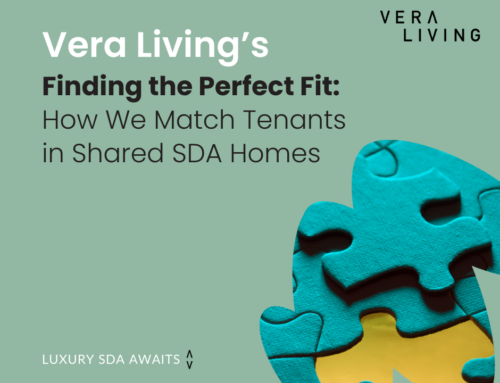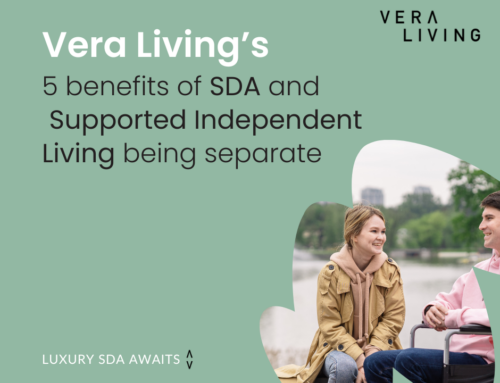How trusted relationships can work to improve complex housing needs for people with disability
Author – Karen Deegan B.A.Sc., Relationship Lead, Vera Living
Karen Deegan is our Relationships Lead at Vera Living. We provide Specialist Disability Accommodation (SDA) throughout Australia for NDIS participants who require a more supportive residential outcome and who want to live in vibrant, well-connected communities. Karen’s role is critical to developing strategic partnerships and collaborating with stakeholders to create new tenant referral pathways and improved outcomes for those to whom we provide our services.
“I’ve worked on housing models with positive social and environmental impact for over 20 years. My credentials in architecture and property development, and my extensive experience which stretches from government housing development to large-scale construction companies and private consulting, have equipped me with the skills and sense of purpose to help create housing models for people who can’t find what they are looking for in traditional models.
With the diversity of my career, and from first-hand experience, I know how easy it is to carry out your professional life in an echo chamber. As each profession brings its own value system and professional worldview, professionals can tend to work in the isolation of their industry or organisation.
Being aware of this, I saw a great opportunity to create a more allied approach across professions, industries and funding streams for a person seeking Specialist Disability Accommodation. The people who are eligible for SDA live with complex support needs, which entails a complex process of eligibility and NDIS approval before bringing their goals to reality.
If we, the various agents who support people with disability, don’t engage with each other, it can cause delays, confusion, and inefficiencies that at worst, produce poorer outcomes for people with disability.
An example of this is the interface between the health system and the NDIS, or more specifically, the discharge of patients from the hospital into the community. The media consistently brings to our attention the long struggle of patients who are eligible for services funded by the NDIS and are medically ready to discharge, but for various reasons languish in hospital.
The time it takes to get the approvals for all the personalised support needs is one factor, but the time it takes to understand a patient’s SDA needs and then build the property, adds considerable time for property development and construction, to an already lengthy period.
Patients eligible for NDIS in Australian hospitals = 1140
Typical length of stay = 112 days
As at November 2021, Senate Community Affairs Legislation Committee
With engagement and early conversations about what a patient needs and wants to live in, the faster and better fit their home can be.
Vera Living prides itself on being capable of building SDA homes that people want to live in. The more we hear from the actual people seeking SDA, and the earlier in that process we hear it, the greater the ability for their home to be built to their desires.
Karen Deegan B.A.Sc.
Relationships Lead
Vera Living








